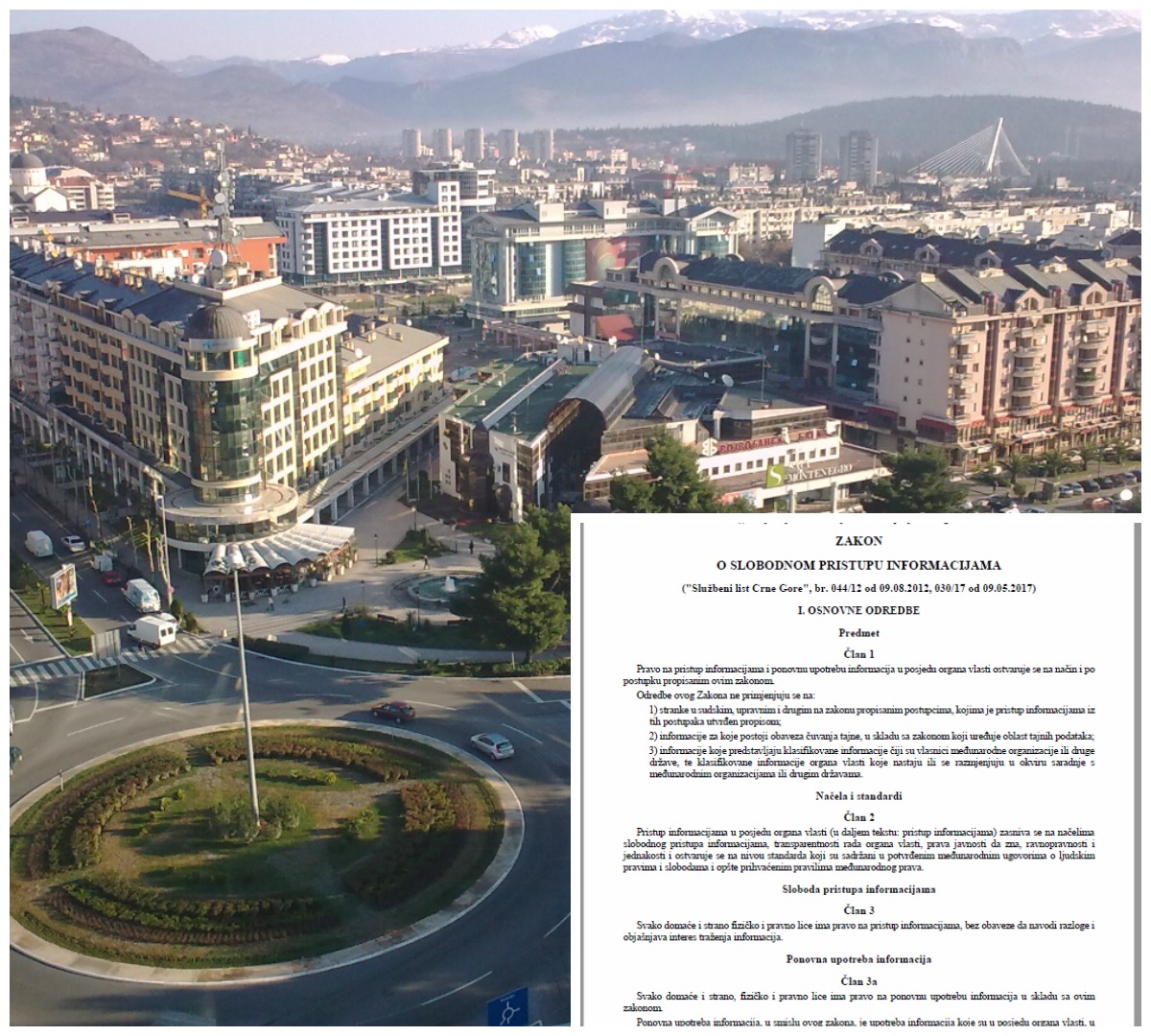

Access Info and MANS call for a working group on reform of the law, possibly as part of Montenegro’s re-established OGP process
Madrid/Podgorica, 28 June 2018: Access Info Europe and MANS today called on the Montenegrin government to undo its 2017 amendments to Law on Free Access to Information (originally adopted in 2006) in order to bring it back into line with international standards.
In an analysis of the Law also launched today, Access Info and MANS signalled that a particular concern is Article 1, newly added in 2017, which contains a series of class exclusions such as information about parties in judicial and administrative proceedings, and “information that must be kept secret” under rules on confidentiality as well as information originating from or exchanged with international organizations or other states.
The introduction in 2017 of exclusions related to business secrets and intellectual property is also already causing problems in practice with public bodies claiming business secrets to deny access to information.
Other concerns raised by the analysis are the broad discretion given to public authorities to determine secrecy (Article 16) and the lack of a sufficiently broad public interest test (Article 17). This is compounded by a provision that prevents requesters appealing to the Agency for the protection of personal data and access to information if the information was refused because it is classified under the new provisions (Article 34).
“The new Article 1 is a cumbersome and poor-drafted add-on that will limit the ability of civic actors to fulfil their role as public watchdogs,” commented Helen Darbishire, Executive Director of Access Info Europe.
“Overall the 2017 amendments run directly counter to international human rights standards and to the jurisprudence of the European Court of Human Rights, which in particular protects the right of access to information for holding power to account,” she added.
Access Info and MANS have called for the establishment of a working group to discuss amendments to the Law on Free Access to Information, in order to harmonize the Law with international standards. The civil society organisations have suggested that this working group and reform of the law could be commitments under the new OGP Action Plan that the government has committed to advance on during the coming 6 months.
Access Info noted that the Court of Justice of the European Union has held that a refusal for access must “explain how access to that document could specifically and actually undermine the interest protected by the exception” and the “mere fact that a document concerns an interest protected by an exception is not of itself sufficient to justify application of that exception.”
In its analysis Access Info evaluated the Montenegrin law for its alignment with the international standards that the country is bound to uphold, including the Council of Europe Convention on Access to Official Documents (ratified by Montenegro in 2012), General Comment Number 34 of the United National Human Rights Committee, rulings of the European Court of Human Rights, EU’s Regulation 1049/2001 and the jurisprudence of the Court of Justice of the European Union.
Access Info and MANS also evaluated the new provision against the Montenegrin constitution, which at Article 51 establishes a limited set of exceptions on the right of access to information. The analysis finds that the new Article 1 lack internal coherence as it establishes that the right of access and reuse shall be under this Law, and then bizarrely, contradicts itself by saying that certain information shall not fall under the scope of the law, and defers immediately to other norms.
This material was produced with the financial support of the European Union. Its contents are the sole responsibility of author and do not necessarily reflect the views of the European Union.

